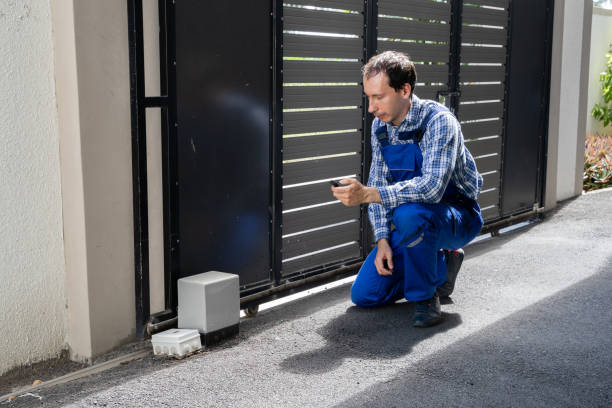
The One-Stop Solution to Soundproofing Your Garage
Introduction Garages can be used as a workshop, gym, or music studio. Garage expert’s steel-line warn that noises from the garage can easily be heard in surrounding areas. This can cause disturbances and discomfort for others. Soundproofing your garage will help you overcome this issue. This blog will cover the various ways to soundproof your garage. We’ll also discuss the materials and techniques that are used.
Materials For Soundproofing Your Garage
Soundproofing your garage can be done with a variety of materials, such as mass-loaded vinyl or acoustic panels, soundproof curtains, and more.
Mass Loaded Vinyl (MLV),
This dense and heavy vinyl material is perfect for blocking out sound that passes through walls and ceilings. It is easy to install and doesn’t require any special equipment or tools. It is durable, water-resistant, and fire-resistant.
Acoustic Panels
Soundproofing garages with acoustic panels is a popular choice. These panels are available in different sizes and shapes, and they’re made of foam or fiberglass. The panels can be easily installed and painted or wallpapered in order to match your garage. Acoustic panels absorb sound waves and reduce the noise reflected into the room.
Soundproof curtains
You can also soundproof your garage with soundproof curtains. These curtains are made of heavy materials designed to stop sound. The curtains are simple to install, and they can be removed or moved if needed. Garages that double as music studios or workshops are great for soundproof curtains.
Soundproof Insulation
Insulating your garage will also reduce the noise transmitted through walls and ceilings. Garages can be insulated with a variety of materials, such as fiberglass, cellulose, and foam. Insulating your garage not only helps to reduce noise but also keeps the space cool and warm in summer.
Techniques For Soundproofing Your Garage
There are many ways to soundproof a garage, including using materials and techniques.
Add Mass To The Ceilings and Walls
The addition of mass is one of the best ways to reduce sound transmission in walls and ceilings. Add soundproofing material, like MLV, to walls and ceilings. This mass absorbs sound waves and reduces the noise transmitted through walls and ceilings.
Resilient Channels
Metal strips are used to separate drywall from framing. These channels reduce sound transmission because they create a space between the drywall framing. This gap absorbs sound waves and reduces the amount of noise transmitted through walls and ceilings.
Installing Acoustical Panels
Another effective way to soundproof your garage is by installing acoustic panels in the ceiling and walls. These panels absorb sound waves and reduce the amount of noise reflected into the room. The panels are easy to install, and they can be painted to match your garage’s decor.
Conclusion
It is important to soundproof your garage so that noises created there do not disturb anyone else. This article explains how to soundproof your garage using a variety of materials and techniques.

